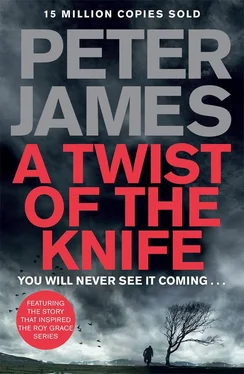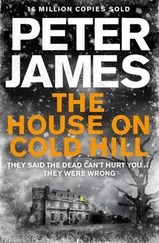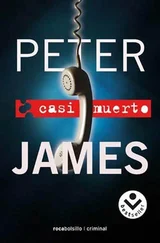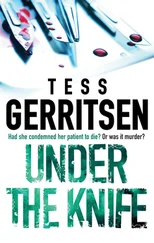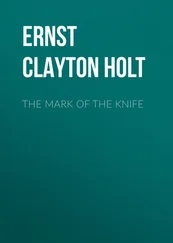‘We could go up the lake a little way instead, and then drift and have lunch in around half an hour. How does that sound?’
She nodded. ‘OK. Or we could row back a little towards the lee shore — it would be nicer to eat not rocking around so much.’ She suddenly had to grip the gunwales as the boat was rocked harshly by another, much bigger wave; the wash from a powerboat heading into the distance at high speed.
Nigel did not seem to need much persuading to turn the boat around. Annie offered to take over rowing, but he was fine, he said, and she could do some after lunch. But as he pulled on the oars he was looking less happy than when they had started out this morning, and the water was looking distinctly less happy too. Instead of getting calmer it was definitely getting a tad rougher all across the lake.
Above them the clouds were building up. Annie delved into the picnic hamper prepared by the hotel and brought out some bottled water. She took a long swig then offered some to Nigel. He shook his head. ‘When we stop, thanks, darling.’
After another ten minutes, to Annie’s relief, the water seemed a little calmer again. At 1 p.m. precisely, Nigel shipped his oars. ‘Lunch?’
‘Good plan,’ she said. ‘I’m ravenous!’
For several minutes, she knelt, keeping her head down, focused on the contents of the hamper. She pulled out a beer, which she opened and handed to Nigel, then peeled two hardboiled eggs, and carefully buttered two rolls. There were plates, knives and forks beautifully wrapped in linen napkins, wine glasses and a bottle of a local white wine, Dole, in a cooler bag. There was pâté in one container, slices of ham in another, tomato salad in a third, as well as an assortment of cheeses and fruits, and two miniature bars of Lindt chocolate.
‘I don’t think we’re going to starve!’ she said, carefully preparing a platter for Nigel. But to her surprise he did not comment. When she looked up to hand it to him, she could see why. Tendrils of mist were drifting by them like ghosts. She turned and the mist was everywhere, thin and hazy and wispy in places. It took her some moments to even spot the shore, and Montreux through it. ‘I thought the weather forecast was meant to be good, Nigel?’
‘That’s what it said on both the ones I checked online, and the concierge assured me of the same. This is probably just some kind of midday heat haze.’
‘More like a sea mist,’ she said.
‘This is a lake, not the sea, darling.’
‘That couple last night said something about sudden mists descending. Maybe we should head back while we can still see the shore — what do you think?’
He dipped his egg into the small pile of salt and pepper Annie had poured onto his plate, then bit into it, and chewed thoughtfully. ‘Maybe that would be wise. Might be best to use the outboard — get a bit closer to the shore and we’ll probably find it’s completely clear there.’
‘I’ll pack the picnic away.’
The boat rocked wildly as Nigel slid off his seat and edged his way, balancing with difficulty, to the stern. The mist was thickening by the second now. The temperature felt as if it had dropped twenty degrees. And suddenly, for a brief moment, Annie could see nothing at all — she was totally engulfed in the mist; she felt disoriented and giddy.
It cleared a fraction, and she could just make out Nigel, barely ten feet away; he was merely a shadow. But she could not see the shore, any shore in any direction. ‘I don’t like this,’ she said.
The temperature was dropping even further. Then, in the distance, she heard a steady, rhythmic thump, thump, thump.
It was getting louder by the second.
Thump, thump, thump.
Cold air suddenly swirled around her.
She could hear the roar of an engine. The thrashing of water.
‘Nigel!’ she called out, panicky. ‘Nigel, start the outboard, please, quickly.’
‘I’m trying — not sure which way I’m meant to turn this ruddy knob.’
She heard the clatter, clatter, clatter as he pulled the starting handle, but no sound of the motor firing. He pulled again.
The thump, thump, thump grew louder, closer. The thrashing sound was louder, closer. The roar of the engine was rising to a crescendo.
Icy air engulfed them. The boat was rocking wildly; strands of her hair whipped her face. The water erupted around them into foaming bubbles, as if some monster beneath them was rising from the deep. Then a shadow, tall as a house, bore down on them out of the mist.
‘NIGEL!’ she screamed.
An instant later she was in the water, spinning around and around in a crazed, choking vortex that was pulling her backwards and under.
An Englishman in a dark suit and a sombre club tie, accompanied by a uniformed police officer, greeted the grief-stricken sixty-year-old man as he stepped off the plane at Geneva airport.
‘Mr Donaldson?’
‘Yes.’
‘I’m Gavin Pearson, the British Consul, and this is Inspector Didier Motte of the Geneva Cantonal Police. I’m very sorry about your daughter, sir.’
Michael Donaldson thanked him, blinking away tears, and shook both their hands.
‘A terrible tragedy, and on their holiday,’ Inspector Motte said, sympathetically.
‘Would you like to have anything to eat or drink, or a rest, before we head off, Mr Donaldson?’ the Consul asked.
‘No, let’s go straight to the mortuary, get it over with, please,’ he replied.
They exchanged few words in the police car for several minutes. Michael Donaldson sat on the back seat, oblivious to the passing surroundings. Then he asked, ‘My son-in-law, Nigel. Presumably you’ve not found... not... recovered... his body yet?’
Inspector Motte, who was driving, responded in his broken English. ‘We are diving on the lake since the unfortunate accident happened, but there are a number of — how you say — courants , and the lake is deep in this part. It may take some time. And we are searching the lake all over, by air and water.’
They drove on in silence. Annie’s father caught a glimpse of the lake to his right, a cluster of vessels way out towards the middle, and the small black dot of a helicopter hovering low over the water, and hastily averted his gaze. He did not even notice them pulling up outside the mortuary building. The rear door of the car was opened by one of the men — he barely registered which — and he stepped out as if in a trance. He was here to identify his daughter’s body. He could not get his head around this.
As if sensing him faltering, as they entered the building, the Consul put his hand on his arm. ‘Mr Donaldson, are you absolutely certain you want to see her body? We could do this another way — identify her from her wedding ring, or items of her clothing, or even dental records or DNA, if you’d prefer?’
‘I want to see her,’ he said. ‘I want to see my baby one last time.’
‘Of course.’
‘Just tell me — I’m still not totally clear about how the accident happened. The English police who gave me and my wife the news only had very sketchy details. They were in a rowboat, quite far out on the lake, in bad weather? It doesn’t sound like my son-in-law — he was a very cautious man. Was... I’m saying was ... he might still be alive, mightn’t he?’
‘I think by now, two days, we would have found him if he was alive,’ the Inspector said.
‘Apparently your daughter, Annie, and son-in-law, Nigel, rented a small day boat, with an outboard, and took a picnic lunch prepared by the hotel,’ the Consul said. ‘The weather forecast was good, but unfortunately, where you have a large mass of water surrounded by mountains, it will always be susceptible to sudden changes. A mist came down that no one predicted — very fast, apparently, and it was a tragic accident. The little boat was run down by a ferry. The captain has been arrested.’
Читать дальше
